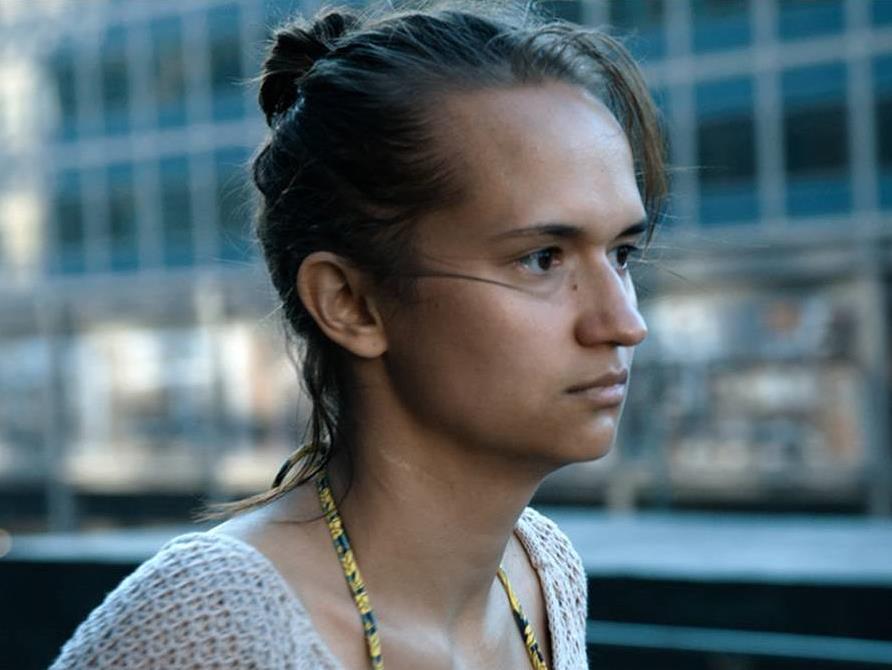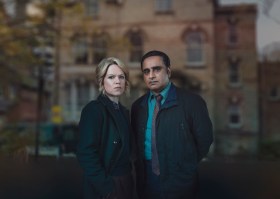In English, the title of writer/director Ronnie Sandahl’s first feature indicates the struggling status of its protagonist. In Swedish, the film’s name offers an exclamation against those from the Scandinavian country. Both fit, for Underdog (Svenskjävel) charts a young immigrant’s experiences in Oslo, specifically placed at a time when Norway has ascended to economic prosperity while Sweden languishes in the post financial crisis climate. Such a reversal of fortunes has proven delicate for both nations to navigate.
As the movie’s moniker also intimates, the novelist and reporter turned filmmaker takes a personal approach to contemporary social, political and cultural woes, grounding his narrative in the life of 23-year-old Dino (Bianca Kronlöf, Maybe Tomorrow). She has followed her hopes and dreams abroad, yet spends most of her time flitting between partying in her share house and waiting for work at a job agency. When Dino is sent to a café run by former tennis star Steffen (Henrik Rafaelsen, Blind), but can’t perform the tasks required due to a broken arm, she seizes the opportunity to become his housekeeper instead.
Tending to his younger daughter Siri (newcomer Naomi Emeilie Christensen Beck) and befriending the teen-aged Ida (fellow debutant Mona Kristiansen), Dino’s dissimilarities to her middle-class, father-of-two boss provide Sandahl with ample material to mine the growing differences between the characters’ countries of origin, as do the many questions raised when their relationship becomes more than professional. And yet, for all its statements, Underdog remains an intimate drama first and foremost, as predicated upon naturalistic shooting and subtle performances.
In style, through the efforts of cinematographer Ita Zbroniec-Zajt (also behind the lens on Sandahl’s short The Route 43 Miracle), the film gazes frankly and unflinchingly upon its contents. Lighting plays a crucial role, using the space between glaring and shadow-dappled to suggest realism rather than artifice. Editor Åsa Mossberg (Waltz for Monica) equally evokes balance in piecing things together, particularly perfecting the rhythm of cutting and conveying sometimes-awkward conversations. Only the score by Stein Berge Svendsen (1989) and Gunn Tove breaks the spell of authenticity, urging the audience to feel rather than relying on the feature’s sights and story to do so.
Thankfully, although saddled with working towards a too-convenient resolution, the corresponding portrayals also veer towards the lifelike rather than the overt side of the spectrum. Kronlöf is better known for comedic work in Sweden, but offers an astute dramatic rendering of a protagonist who refuses to be trapped by circumstances. The other standout and similarly internalised performance comes from first-timer Kristiansen as the all-seeing adolescent finding her ideas of adulthood shaped by Dino’s influence in her household. Indeed, just as its tale succeeds on several layered levels, Underdog has more than one culprit who exceeds expectations in this textured, thoughtful contemplation of Nordic relations in a microcosm.
Rating: 3.5 stars out of 5
Underdog (Svenskjävel)
Director: Ronnie Sandahl
Sweden/Norway, 2014, 97 mins
Scandinavian Film Festival
www.scandinavianfilmfestival.com
Sydney: 8 – 26 July
Melbourne: 9 – 26 July
Canberra: 14 – 26 July
Brisbane: 16 – 26 July
Byron Bay: 17 – 23 July
Adelaide: 22 – 29 July
Perth:23 – 29 July
Hobart: 23 – 29 July
Actors:
Director:
Format:
Country:
Release:





